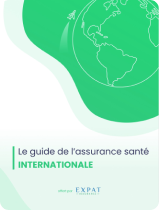The seconded worker is sometimes confused with an expatriated. In both cases, they leave their countries to work abroad. But they have different rights and obligations that are important to know.
Here, you are going to find the answer to questions like what is a secondment and how long can it last.
You will also find out what are the differences with expatriation, some notes about your rights in both situations, and information about secondment insurance.
Differences Between a Seconded Worker and an Expatriated
The seconded employee and the expatriated employee both have differences in their status.
These differences mainly concern the employment contract, the duration of the work abroad, and social protection.
Here is a table showing the main differences between an expatriate employee and a seconded employee:
| Social status | Expatriated worker | Seconded worker |
| Social Protection | Attached to the regime of the host country | Attached to the regime of the home country |
| Work contract | Employment contract with his/her employer in the host country + suspended employment contract with his/her employer in country of origin (if he/she has one) | Work contract with his employer in his country of origin |
| Working hours abroad | Long-term | Short-term |
Seconded Workers Have a Contract in Their Home Country
Secondment consists of carrying out an assignment abroad on behalf of an employer who is established in your home country.
The seconded worker retains his or her employment contract and is still part of the company’s workforce for the duration of the assignment.
They remain subordinate to their employer and return to their position at the end of their job.
The task is governed by a letter of assignment or an amendment to the employment contract specifying how long the secondment will last and its location.
It can go from a few months to several years, depending on the country of destination, and can be extended under certain conditions.
The Expatriates Are No Longer Subject to Their Countries’ Law
The term “expatriation” is used in the case of a seconded worker who continues to work abroad after the end of the maximum authorized period.
And for employees working in their countries and are sent by their employer on an assignment abroad in another company.
Now that you know what is a secondment, it’s time to talk about expatriation.
The difference lies in the fact that this last one breaks temporarily the subordination link: the original employment contract is suspended and replaced by a local contract that applies for the entire duration of the expatriation.
This duration does not have to be defined in advance, and the conditions of the employee’s reintegration upon return must be negotiated in advance.
Finally, expatriation also applies to employees who are recruited directly to work abroad.
Secondment: Rights in Terms of Social Protection
Expatriation or Secondment: Unequal Situations
Expatriation and secondment do not have the same consequences: for example, an expat is no longer a tax resident in his/her home country. But a seconded worker is still considered as one.
But it is mainly from the point of view of social protection that the differences are felt.
The secondment keeps the employee under the protection of the national Social Security system: employer and worker contributions do not change, neither with the health insurance nor with the pension funds, without any impact on the quarters acquired during the mission period.
The employer is responsible for taking the necessary steps to maintain the employee’s rights.
In European Union countries, it is possible to apply for local health insurance, but it will not cover work stoppages or accidents. An expatriation or secondment insurance might be a better option
The Expatriate Is No Longer Covered by Social Security
Expatriates are no longer covered by their national Social Security system: their health and retirement depend on the local system.
Depending on the country of expatriation, this protection may be quite satisfactory or, on the contrary, completely insufficient (absence of a mandatory system, very high health care costs, etc.).
Sometimes the employer provides for the employee’s social protection, but it is essential to verify that the level of coverage provided is satisfactory.
The Importance of Getting a Secondment Insurance
Advantages of International Secondment Insurance
After having discussed what is a secondment, an expat and their rights, it’s time to look at the importance of having an international insurance policy.
Getting one is often an interesting solution, no matter if it’s taken out by the employer or the employee.
In countries where health care costs are higher than in the country of origin, it allows for better reimbursements than those provided by Social Security.
In countries where the health system suffers from poor infrastructure or sanitary conditions, international secondment insurance optimizes access to care through partnerships with private health care networks.
It is also a way to obtain extended coverage (civil liability, baggage protection, etc.) and repatriation assistance.
Unlike national plans, international insurance protects the seconded worker or the expatriate during their stays outside their host country.
Finally, an international secondment insurance policy makes it possible to manage procedures and reimbursements in a simplified manner, and to benefit from assistance in your language.
Choose Your Secondment Insurance to Be Well Covered and Contribute to Your Retirement
Among the interesting international insurance offers in the case of seconded workers and expats, you can find options in your home country.
Depending on your personal situation and the destination of your relocation, each offer will be more or less adapted.
Many packages and formulas also exist for specific destinations.
Using an online comparison tool such as Expat Assurance, you can easily obtain several quotes to make the best choice.
Please note: taking out an international insurance policy for expatriation or secondment does not exempt you from your obligations to pay your contributions or to join a local scheme.
Frequently Asked Questions
A secondment consists in carrying out an assignment abroad on behalf of an employer from your home country. The employee has the status of a seconded worker.
We speak of expatriation when:
– Seconded workers continue to work abroad at the end of the maximum period authorized for a secondment
– Employees working in their countries are sent by their employer to work abroad in another company
– Employees that are recruited directly to work abroad.
There are 2 categories of secondments:
– Short-term: This is a maximum of 6 months, extended to one year for secondments abroad or in certain overseas territories, and is not renewable
– Long-term: This is for a maximum of 5 years with a possible renewal.
While on secondment, the employee benefits from their national Social Security coverage.
However, if you are expatriated abroad, you cease to be covered by it. In both cases might be interested to get secondment insurance.







